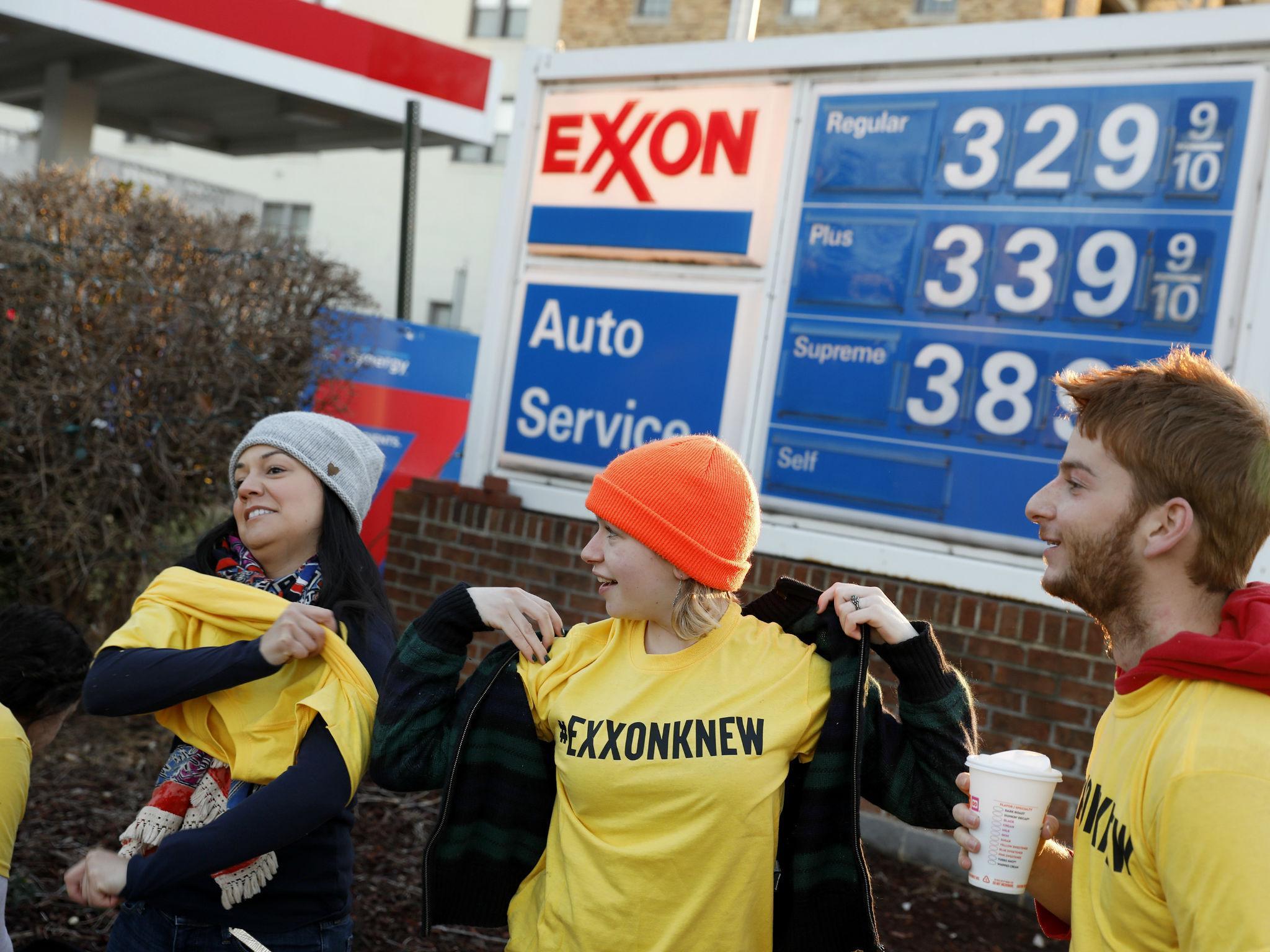This website uses cookies so that we can provide you with the best user experience possible. Cookie information is stored in your browser and performs functions such as recognising you when you return to our website and helping our team to understand which sections of the website you find most interesting and useful.

Exxon Mobil’s demotion from the Dow Jones Industrial Average after nearly a century is being celebrated by environmentalists as a harbinger of the fossil fuel industry’s demise.
The oil behemoth was the longest-running member of the blue-chip stock market index after being added in 1928 when it was still called Standard Oil of New Jersey. In 2013, Exxon was the most valuable company on earth, valued at around $418billion.
Exxon Mobil is not alone in dropping out. Pharmaceuticals giant, Pfizer, and Raytheon Technologies, an aerospace and defence manufacturer, will also drop from the Dow before trading opens this coming Monday.
Exxon Mobil shares fell 3.4 per cent, Pfizer fell 1.6 per cent and Raytheon lost 2 per cent on the news.
The companies will be replaced by tech firms: Software company, Salesforce.com; Amgen, a biopharmaceutical company; and Honeywell International, a building and aerospace conglomerate. The trio’s shares got a bump of around 3 per cent following the announcement. Chevron is now the last remaining oil company on the Dow.
Exxon Mobil’s drop appears emblematic of the changing fortunes of the fossil fuel industry, as calls to tackle the climate crisis gather momentum. Emissions from fossil fuels are the primary cause of global heating, according to the Intergovernmental Panel on Climate Change. Some 89 per cent of greenhouse gas emissions came from fossil fuels and industry in 2018, according to CarbonBrief.
In a statement, May Boeve, executive director of environmental non-profit 350.org, wrote: “Big Oil has fallen. Our job is to make sure they don’t take us down with them. Fossil fuel companies like Exxon knew and lied for decades about the main cause of the devastating impacts we’re now experiencing across the globe: from fires, storms and floods to droughts and rising seas.
“As the finance world wakes up and cuts ties with these climate criminals, we are rising up to make polluters pay for their destruction.”
She added: “Exxon’s deep fall today is another powerful reminder of how fossil fuels are too volatile to be the basis of a resilient economy. It is past time for Exxon to recognise that it is not only one of the most responsible for the climate crisis, but also that its assets are quickly becoming stranded as we move towards more sustainable, resilient, and regenerative economic systems, based on renewable, accessible and just energy sources.”
Dr. Peter Gleick, climate scientist and member of the US National Academy of Sciences, tweeted: “This is some kind of milestone. Exxon-Mobil is out of the Dow Jones Industrial Average. Fossil fuels are dying. Most people just don’t know it yet.”
“Oil is on its way out,” Greenpeace posted.
From its peak market value of $446bn in mid-2014 – when crude oil was last above $100 a barrel – Exxon Mobil is now worth $267bn, CNN reported.
In a statement to The Independent, an Exxon Mobil spokesperson said: “This action does not affect our business nor the long-term fundamentals that support our strategy. Our portfolio is the strongest it has been in more than two decades, and our focus remains on creating shareholder value by responsibly meeting the world’s energy needs.”
The coronavirus pandemic and global oversupply that briefly drove oil prices into negative territory this spring dealt a severe economic blow to the industry.
But President Trump spoke in bullish terms last month during a visit to the fracking fields of West Texas. Prices have rebounded to around $40 a barrel, still below what some producers here need to break even.
We’re OK now. We’re back, we’re back,” Mr Trump said.
Wires contributed to this report



 Africana55 Radio
Africana55 Radio 

